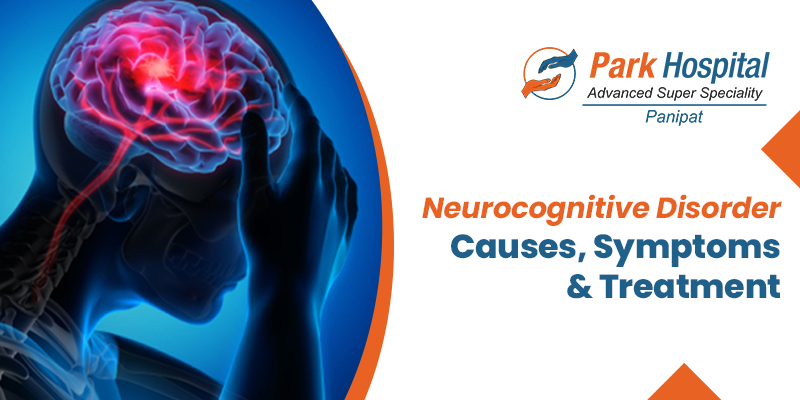The seasonal flu affects 3-5 million people worldwide each year, but in rare instances, it can cause brain damage in addition to a fever and fatigue. As of February 2025, the CDC reports that severe neurological implications accounted for 13% of pediatric flu deaths during the current season. This concerning statistic highlights the unknown but potentially fatal risks that influenza may pose to young children as well as adults. Let's understand how seasonal flu affects your brain and what is the best time to visit a neurologist near me.
How the Seasonal Flu Can Affect Your Nervous System?
When the flu virus enters the body, the immune system responds. Occasionally, that immune response can become exaggerated and affect the nervous system either through systemic inflammation or, in rarer cases, it can affect the brain. This may result in:
Seizures
The most frequent neurologic complication is seizure, which can manifest as febrile seizures, exacerbations in individuals with epilepsy. A neurologist in Faridabad may also notice signs of other neurologic diseases, such as brain fog brought on by influenza.
Encephalopathy
Another common neurologic side effect of influenza is encephalopathy, which can range from mildly altered mental states that usually go away with very little lasting effects to comas with severe long-term consequences.
Other Neurologic Complications
Acute disseminated encephalomyelitis, Guillain-Barré syndrome, transverse myelitis, stroke, and focal neurologic impairments are some of the less common neurologic complications. These have been reported by the best neurologist doctor near me.
The Most Severe Form: Acute Necrotising Encephalopathy (ANE)
When it comes to nervous system complications, ANE is the most serious type. It generally affects children under the age of 5 and causes swelling in critical brain regions, including the thalamus. About half of all cases that are reported lead to death, and many survivors experience long-term neurological issues.
Who Is Most at Risk?
Although anyone can get the flu, some people are at higher risk of complications, including neurological consequences. Here are some risk factors that a neurologist in Gurgaon may notice:
Chronic lung disease (e.g., asthma or COPD)
A prior neurological or cardiovascular disease
Diabetes or obesity
Liver or kidney disease
A weakened immune system
Pregnancy
A neurologist near me should recognise when symptoms are getting worse to help prevent serious outcomes. For instance, getting in touch with a neurologist can help in Epilepsy treatment at the earliest, even before it gets worse.
When to See a Neurologist?
If you experience any of the following symptoms during or shortly after the flu, get in touch with the best neurologist in Jaipur Rajasthan, immediately:
Uncontrolled, rapid, and often involuntary muscle contractions.
Confusional or sudden changes in cognition, including agitation and disorientation, or hallucinations.
Continued dizziness or extreme weakness, such as feeling unsteady or trouble walking.
Trouble talking, such as slurred speech or difficulty controlling muscles in the face and throat.
Unusual movements, such as jerking movements or loss of coordination.
Get Effective Treatment and Care from the Best Neurologist!
The neurological effects of influenza are real and becoming more widely recognised, even though the phrase "seasonal flu" is not yet commonly spoken. In rare instances, they may pose a threat to life. For many others, they can cause cognitive disruption, mental fog, and chronic fatigue that lasts long after the acute stage of sickness.
Contact the neurologists near me at Park Hospital. Neurologists treat and diagnose disorders affecting the brain, spinal cord and peripheral nervous system. Book your next visit for headaches, sleep disorders, multiple sclerosis, epilepsy, and naturopathy pain!
FAQs
1. Can the seasonal flu affect the nervous system?
Beyond its effects on the lungs, seasonal flu or influenza is known to cause several neurological problems, including cognitive impairment, encephalopathy, and seizures.
2. What signs show that flu symptoms are affecting the brain?
When we think of the flu, we usually picture fever, chills, sore throat, and body aches. But influenza can also affect the brain, causing cognitive issues like brain fog, memory lapses, and trouble concentrating. This is often called “flu brain.”
3. How do neurologists diagnose flu-related nerve problems?
Neurologists diagnose flu-related nerve problems by doing a physical and neurological exam to check motor, sensory, and cognitive function, often along with a recent flu history.
4. Can the flu cause long-term nerve or brain complications?
Severe flu infections raise the risk of long-term cognitive problems and other neurological complications more than severe COVID-19, because the flu causes broader inflammation throughout the body.
5. Is the flu vaccine helpful in protecting the nervous system?
Yes, the flu vaccination is useful in protecting the nervous system, especially by preventing the flu and significant neurological complications that result from the flu, including a stroke, encephalitis, and potentially neurodegenerative diseases such as Alzheimer's and Parkinson's disease.















